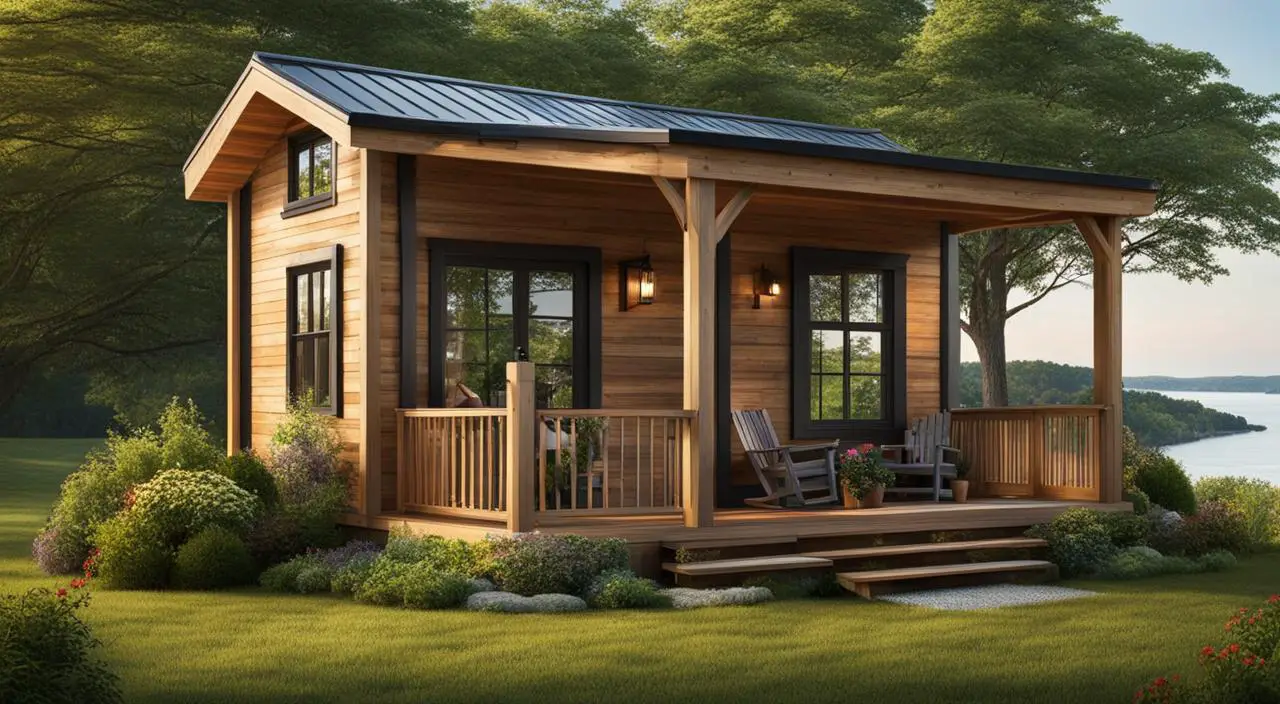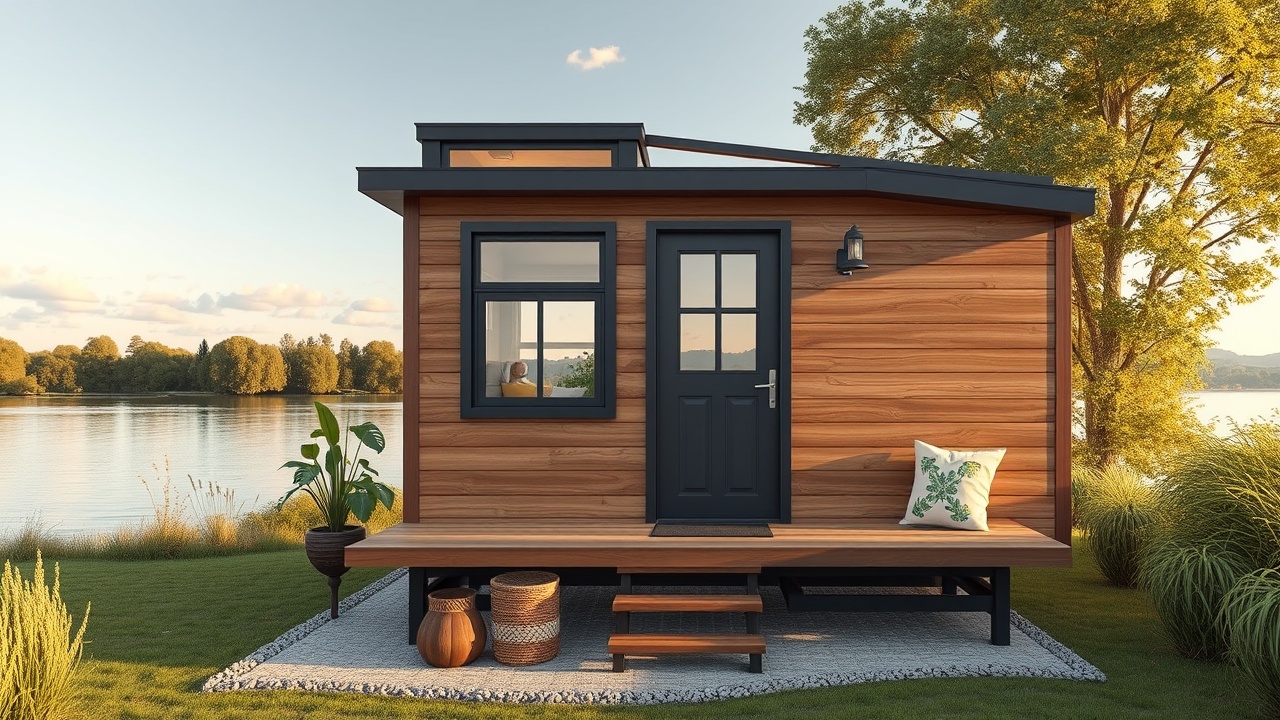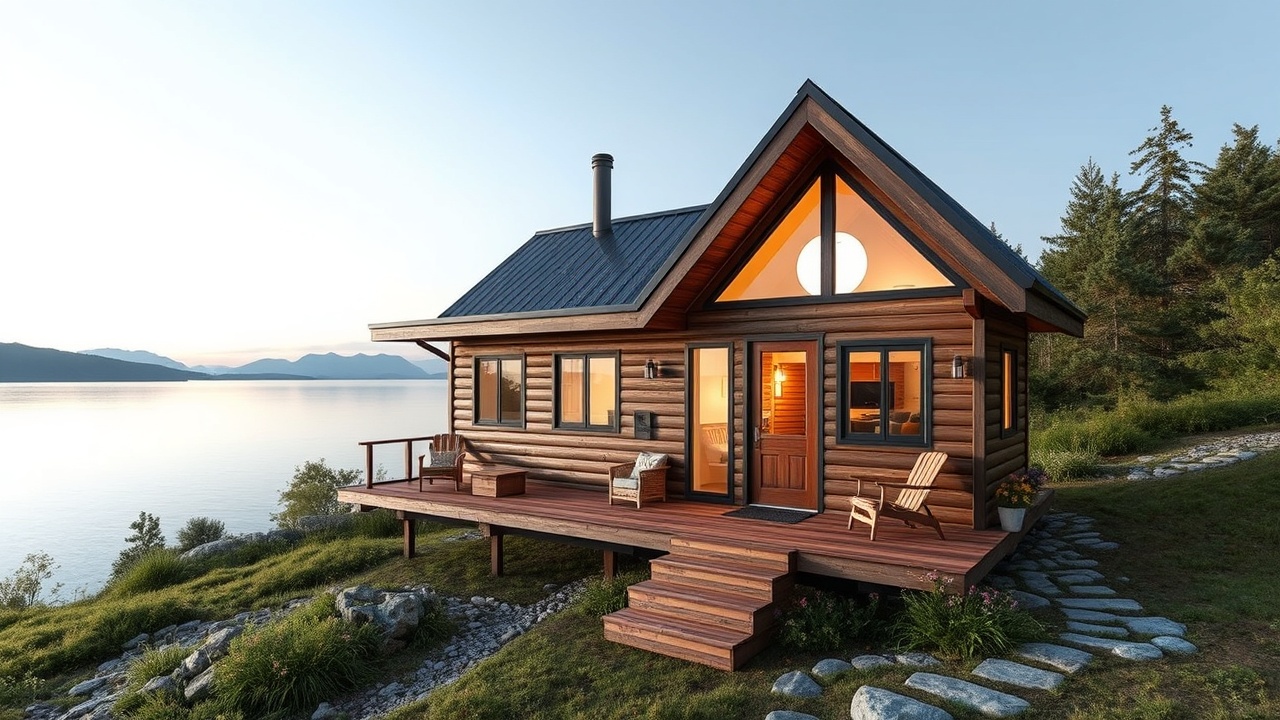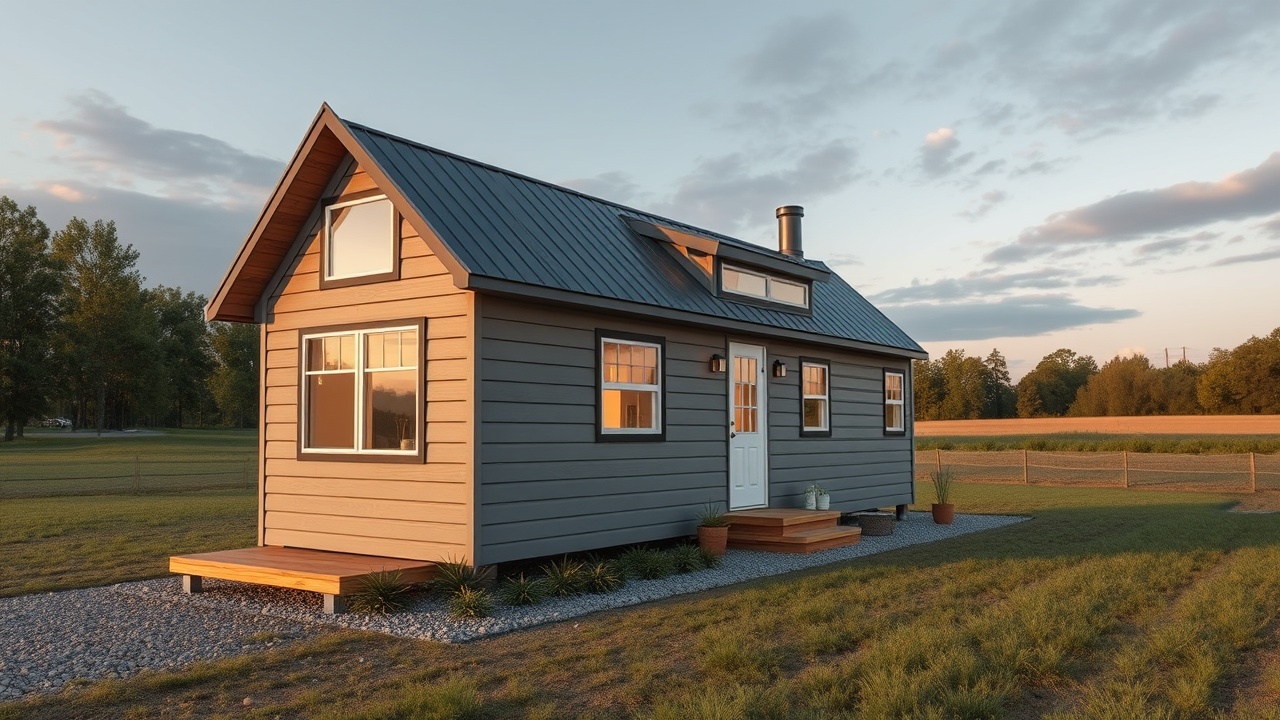Tiny House Laws Maryland: Living in a tiny house in Maryland is becoming increasingly popular, but it’s important to understand the laws and regulations that govern their construction and occupancy.
Knowing and complying with these laws is essential to ensure a smooth and successful tiny house project.
Contents
This guide provides an overview of the tiny house laws in Maryland, including zoning regulations, building codes, permits, and land use restrictions.
It covers the legal requirements and challenges of tiny house living in the state, as well as the advantages and benefits of joining the tiny house movement.
Are Tiny Houses Legal in Maryland?
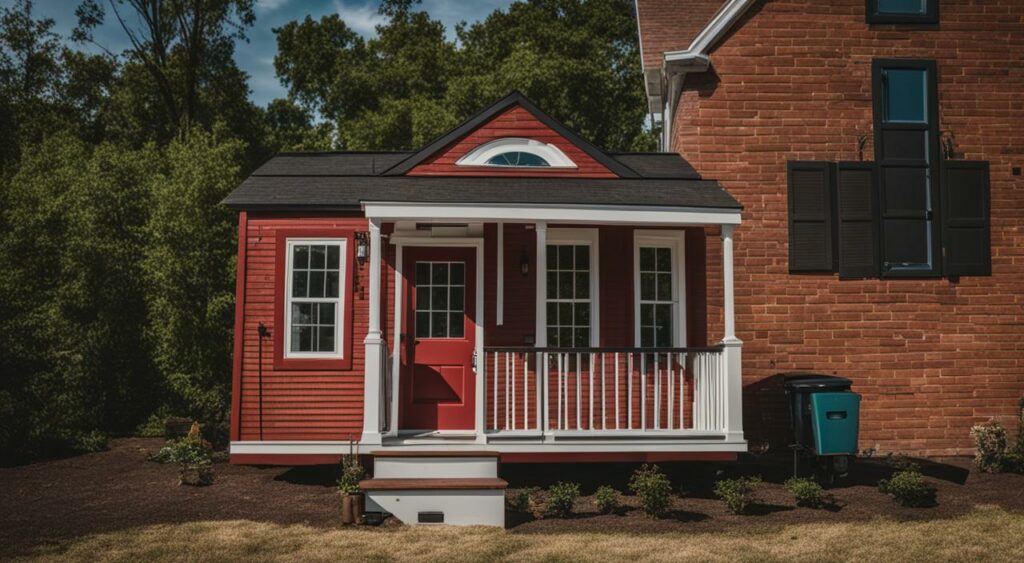
Tiny houses have gained popularity in recent years as a more affordable and sustainable housing option.
However, before considering building or living in a tiny house in Maryland, it’s important to understand the legal requirements related to these structures.
Current Legislation
As of 2021, there are no specific laws or regulations in Maryland that address tiny houses. However, individuals are still subject to existing building codes, zoning laws, and land use regulations when constructing or occupying a tiny house.
It’s important to consult with local authorities and zoning officials to determine if a tiny house is allowed in a specific area and what permits may be required.
Tiny Home Laws in Maryland
While there are no specific laws governing tiny homes in Maryland, certain regulations may still apply.
For example, the state’s building code requires that all residential structures have a minimum square footage of 120 square feet for the first occupant, and an additional 100 square feet for each additional occupant.
Additionally, zoning laws in Maryland may limit the use of tiny houses based on the property’s zoning designation. In general, tiny houses on wheels may be subject to different regulations than tiny houses on a foundation.
Tiny House Regulations in Maryland
When it comes to tiny house regulations in Maryland, it’s important to note that each county and municipality may have their own specific laws and requirements.
For example, Montgomery County in Maryland allows tiny homes on wheels as Accessory Dwelling Units, provided they comply with specific regulations related to size, height, and setback requirements.
Other counties and municipalities may have different regulations, so it’s important to research local laws before constructing or living in a tiny house in Maryland.
It’s important to research local laws before constructing or living in a tiny house in Maryland.
Zoning Laws and Building Codes for Tiny Houses in Maryland
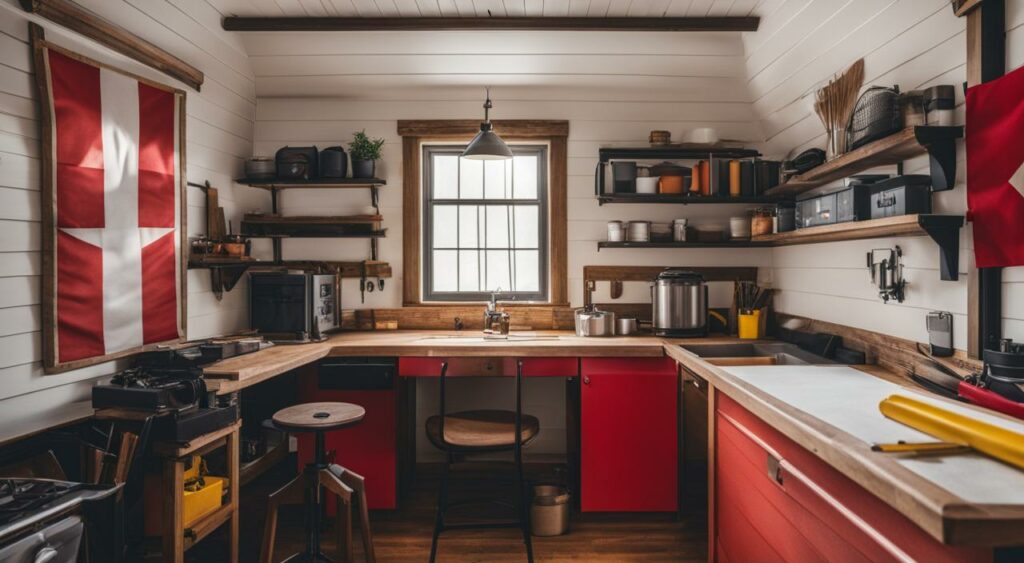
When building or living in a tiny house in Maryland, it is essential to understand the zoning laws and building codes that apply to these structures.
Maryland’s zoning laws and building codes are in place to ensure that all structures, including tiny houses, are safe, habitable, and meet specific standards.
Zoning Laws for Tiny Homes in Maryland
The first thing to consider when building a tiny house in Maryland is zoning laws. These laws dictate where tiny houses can be placed, as well as what land use restrictions may apply.
Zoning laws in Maryland vary by county, so it is essential to research the specific zoning laws in the area where you plan to build or park your tiny house.
For example, in Montgomery County, tiny houses on wheels are treated like RVs and can only be parked on private property for up to 14 consecutive days.
In Baltimore County, tiny houses on wheels are not allowed as permanent residences, but tiny houses on foundations are permitted as accessory dwelling units.
Building Codes for Tiny Houses in Maryland
Building codes in Maryland are set by the state and enforced by local jurisdictions. These codes ensure that all buildings, including tiny houses, are constructed safely and to specific standards.
It is essential to research the building codes in your area before beginning construction on your tiny house.
Some of the building codes you may need to comply with when building a tiny house in Maryland include plumbing, electrical, and mechanical codes.
These codes dictate things like the minimum size of the house, the number of rooms, ceiling height, and emergency escape requirements.
Permits for Tiny House Construction in Maryland
To build a tiny house in Maryland, you will need to obtain permits from your local jurisdiction. The permits required will depend on the type of tiny house you are building, as well as the location where it will be placed.
For example, if you are building a tiny house on wheels, you may need to obtain a permit for a temporary structure. If you are building a tiny house on a foundation, you may need to obtain a building permit.
Land Use Regulations for Tiny Houses in Maryland
Land use regulations in Maryland are designed to ensure that all structures are placed and used in a way that is safe and appropriate for the area.
These regulations can vary by county, so it is essential to research the specific regulations in your area.
For example, in Prince George’s County, tiny houses on wheels are only permitted on private property for temporary use such as camping, or for storage of the tiny house when not in use.
However, tiny houses on foundations can be built as accessory dwelling units.
Overall, understanding the zoning laws and building codes that apply to tiny houses in Maryland is crucial for anyone considering building or living in a tiny house in the state.
By doing your research and obtaining the necessary permits, you can ensure that your tiny house is built safely and complies with all relevant regulations.
Parking and Transportation Considerations for Tiny Houses in Maryland
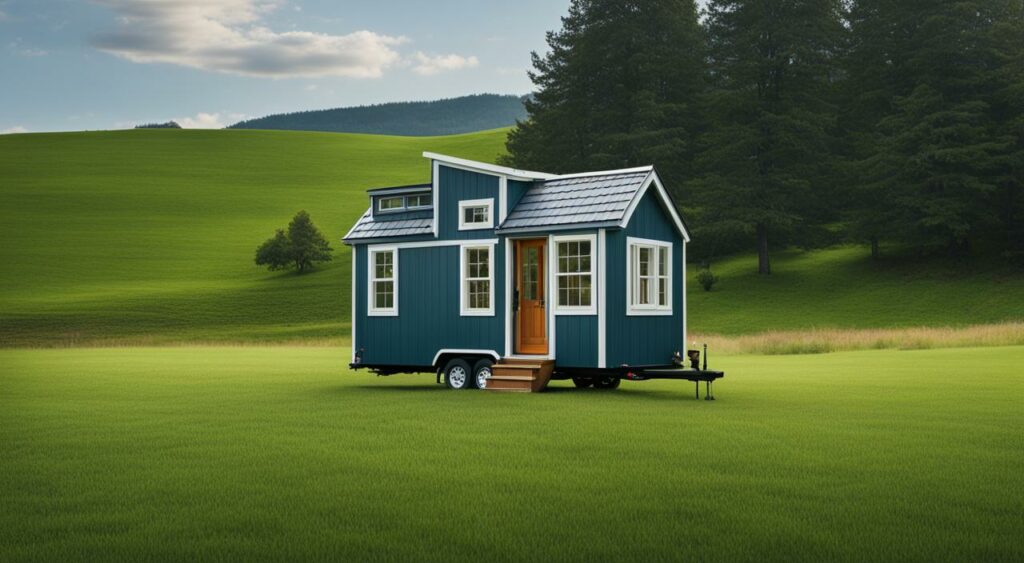
When it comes to living in a tiny house in Maryland, it’s essential to understand the parking regulations and transportation laws.
As many tiny houses are built on wheels, they fall under the jurisdiction of the Maryland Department of Transportation (MDOT) and must comply with specific laws and regulations.
Tiny House on Wheels Laws Maryland
If you plan to build a tiny house on wheels in Maryland, several laws apply. According to Maryland law, all trailers must have brakes on all wheels, and safety chains must be used when towing a trailer.
Additionally, all trailers must have proper lighting, including rear lights, brake lights, turn signals, and reflectors. It’s also crucial to ensure that your tiny house on wheels complies with Maryland’s size and weight regulations.
The MDOT sets the maximum height, width, and length limits that vehicles can legally be on the roadways.
Therefore, it’s essential to ensure that your tiny house on wheels falls within these limits and that it has the required permits and licenses to operate as a vehicle in the state.
Permits Needed for Tiny Houses in Maryland
Building a tiny house in Maryland requires various permits, depending on the location of your tiny house and its use.
For example, if you plan to build your tiny house on a piece of land, you’ll need to obtain the necessary building permits from the local government.
Similarly, if you plan to park your tiny house on wheels in a specific location, you may need to seek permission from the landowner or obtain a permit from the local government.
The permit requirements also vary for tiny house communities in Maryland.
Some communities require residents to obtain permits and licenses for their tiny homes, while others have their own set of rules and regulations in place.
Tiny House Parking Regulations in Maryland
In addition to complying with the Maryland Department of Transportation’s regulations for tiny houses on wheels, it’s crucial to understand the parking regulations for tiny houses in Maryland.
Local zoning ordinances and building codes regulate where you can park your tiny house, and some jurisdictions prohibit parking tiny homes on a permanent basis altogether.
However, some areas in Maryland have embraced the tiny house movement and have established tiny house communities where residents can park their tiny homes on a more permanent basis.
These communities have their own set of regulations and rules, and residents are required to comply with these regulations to live in the community.
When it comes to parking your tiny house in Maryland, it’s important to research the local regulations and seek expert advice.
Contacting professionals who specialize in tiny house construction and consulting with a zoning attorney can help you navigate the complex legal requirements and ensure that you comply with all applicable regulations.
Tiny House Communities and Lifestyle in Maryland
Maryland is increasingly becoming a hub for the tiny house movement, with a growing number of individuals and families opting for tiny homes as a way of reducing costs and living more sustainably.
Tiny house communities are now emerging all over the state, offering individuals the opportunity to connect with like-minded people and build a sense of community.
The tiny house movement in Maryland is driven by the desire to live a simpler life with fewer material possessions.
Tiny homes allow residents to focus on experiences rather than things, prioritizing relationships and personal growth over accumulation of goods.
This is especially true in tiny house communities, where residents share a common space and develop close bonds.
Living in a tiny house in Maryland offers many benefits, including reduced costs of living, lower environmental impact, and a simpler, more sustainable lifestyle.
Residents typically have more financial freedom and flexibility, with lower mortgage payments and utility bills.
Many also appreciate the sense of freedom and independence that comes with downsizing and living in a smaller space.
Tiny house communities in Maryland come in many forms, from small clusters of homes on private land to larger communities with shared facilities and amenities.
For example, The Resort at Massey’s Landing in Millsboro, Delaware, is a tiny house community that features a swimming pool, fitness center, and other communal spaces.
The community is a popular destination for weekend getaways or extended stays. Another popular tiny house community in Maryland is the Blue Moon Rising Village, located in McHenry.
This community features eco-friendly homes with a focus on sustainability and off-grid living. Residents can enjoy access to the nearby Deep Creek Lake, hiking trails, and other outdoor activities.
Living in a tiny house community in Maryland offers many advantages, including a strong sense of community and social support.
Residents often share resources, such as tools and equipment, and work together on projects to improve the community.
This creates a strong sense of camaraderie and a feeling of belonging.
In conclusion, tiny house communities are becoming increasingly popular in Maryland due to the many benefits they offer, including reduced costs of living, lower environmental impact, and a simpler, more sustainable lifestyle.
These communities provide residents with a sense of community and social support, creating a unique living experience that is both rewarding and fulfilling.
Legal Requirements and Regulations for Tiny Homes in Maryland
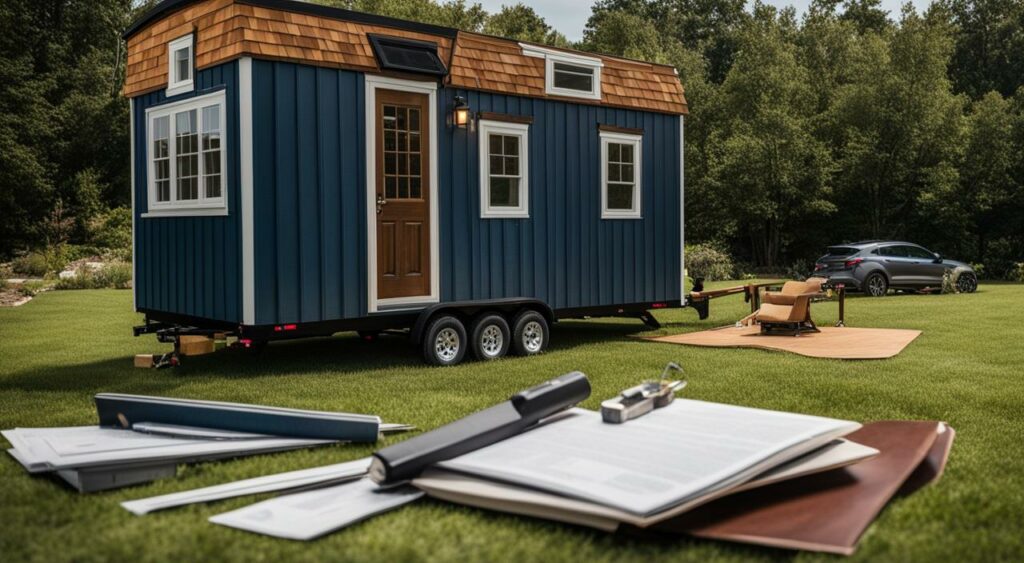
Before constructing or living in a tiny house in Maryland, it is crucial to understand the legal requirements and regulations that apply to tiny homes.
Here are some of the most important regulations to consider:
Minimum Square Footage Requirements
Maryland does not have a statewide minimum square footage requirement for residential properties.
However, some local jurisdictions may have their own regulations regarding minimum square footage for homes. It is important to check with your local zoning office to ensure compliance with any such regulations.
Zoning Regulations for Tiny Houses
Zoning regulations vary depending on location. In some areas, tiny houses on wheels may be classified as recreational vehicles and may not be allowed as full-time residences.
In other areas, tiny houses may be allowed as accessory dwelling units on existing residential properties. It is essential to check the local zoning regulations before building or parking a tiny house in Maryland.
Tiny House Community Regulations
If you plan to live in a tiny house community in Maryland, it is important to understand the regulations governing these communities.
Some counties and cities may have specific regulations regarding the establishment and operation of tiny house communities.
It is essential to research and comply with these regulations before joining or establishing a tiny house community in Maryland.
Building Codes for Small Houses
Building codes in Maryland generally apply to all residential buildings, including tiny houses. It is important to comply with these codes to ensure the safety and structural integrity of the tiny house.
Some building codes may have specific requirements for small homes, such as ceiling height, stair dimensions, and room size.
It is crucial to consult with a licensed contractor or building inspector to ensure compliance with all building codes.
By understanding and complying with these legal requirements and regulations, individuals can enjoy the benefits of living in a tiny house in Maryland without facing legal or safety issues.
Advantages and Challenges of Tiny House Living in Maryland
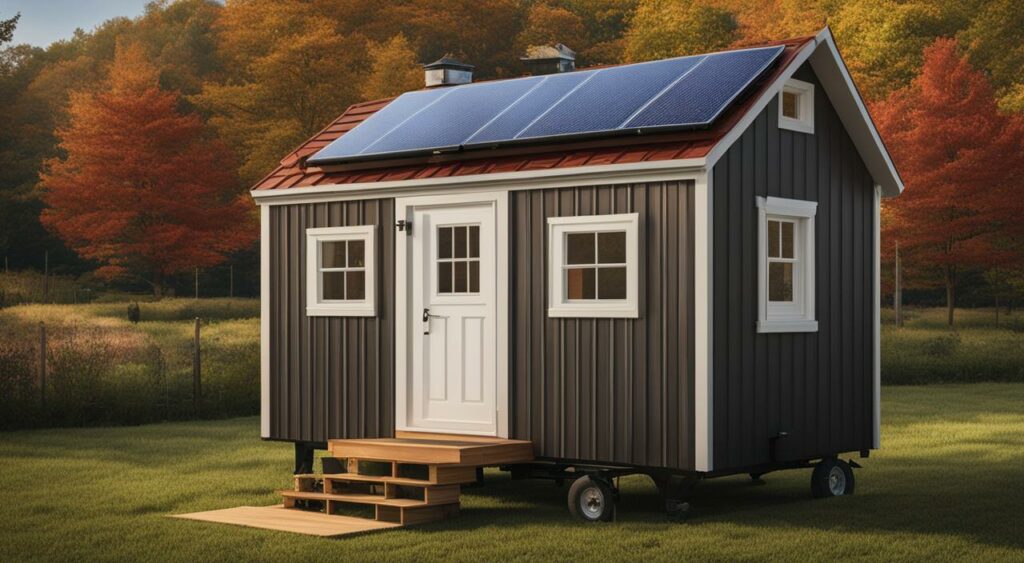
Living in a tiny house in Maryland comes with its share of advantages and challenges. As mentioned earlier, one of the significant benefits of tiny house living is the reduced cost of living.
Tiny houses are affordable to build and maintain, and they allow you to live a minimalist lifestyle with fewer possessions. They also help reduce your carbon footprint, making them an environmentally-friendly housing option.
However, tiny house living also presents some challenges. One of the most significant obstacles is complying with tiny house size restrictions in Maryland.
The state has minimum square footage requirements for homes, which may not be conducive for tiny homes. Building codes for small houses in Maryland can also be a hindrance.
It is important to consult with local authorities and professionals to ensure you meet the necessary regulations and codes.
Another challenge is that tiny house living in Maryland requires special permits.
Housing regulations can also limit where you can park or place your tiny house, making it challenging to find suitable locations.
Consequently, it can be challenging to find suitable land for your tiny house and to navigate the permits required.
The Importance of Permits for Tiny Homes in Maryland
Permits for tiny homes in Maryland are a crucial aspect of tiny house living. They ensure that your tiny house meets all the necessary building codes and safety standards.
For instance, permits ensure that your tiny house is structurally sound and has proper electrical and plumbing systems. Getting a permit for your tiny home in Maryland can be a challenging and time-consuming process.
The permits required will depend on the type of tiny house you are building, where you plan to park or place it, and whether you want it to be on a foundation or wheels.
The Role of Building Codes for Small Houses in Maryland
Building codes for small houses in Maryland ensure that your tiny house is up to par with the state’s safety and health standards.
Because tiny homes are relatively new, building codes are continuously evolving to meet the needs of this new housing trend. Building codes for small houses in Maryland are, therefore, subject to change over time.
Complying with building codes for small houses in Maryland is critical to ensure your safety and the safety of your neighbors. Failure to adhere to these codes could result in fines or other legal issues.
“Living in a tiny house in Maryland comes with its share of advantages and challenges.
Consulting Professionals and Builders for Tiny House Projects in Maryland
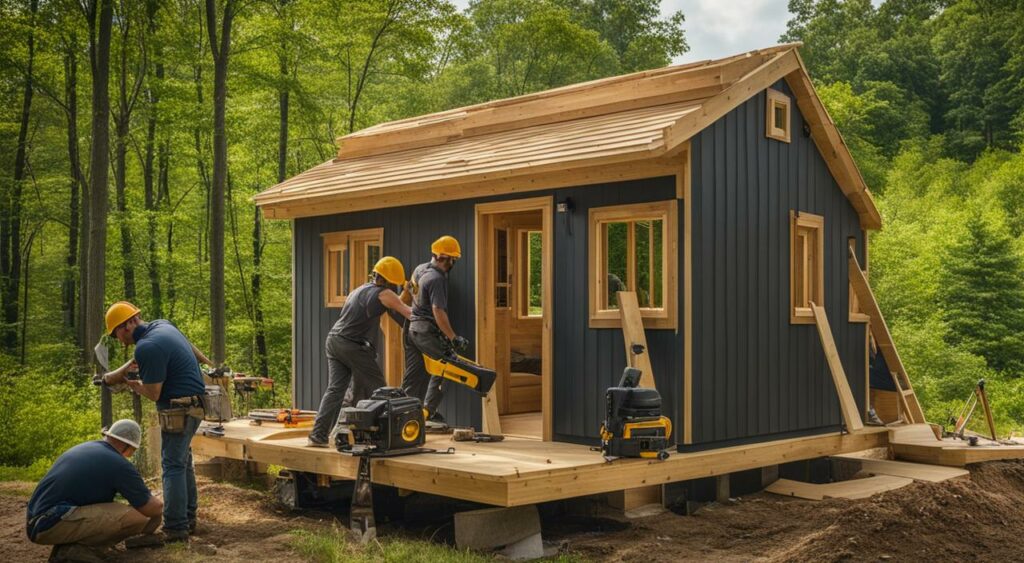
When considering a tiny house project in Maryland, it is crucial to consult with professionals and experienced builders in the field.
Seeking advice from experts will help ensure that you are aware of all the legal requirements and regulations for construction and land use in the state.
Look for reputable and trustworthy tiny house builders in Maryland who have experience with constructing small homes that comply with local building codes and regulations.
Ask for references and proof of licensure and insurance before hiring a builder. Another important consideration when building a tiny house in Maryland is the use of wheels.
Some tiny homes are built on wheels to allow for mobility and flexibility. However, this can raise additional legal and regulatory concerns, such as permits for parking and transportation and compliance with Maryland’s building codes.
It is also worth noting that the tiny house movement in Maryland is known for its friendly people and supportive community.
Joining a tiny house community can provide valuable insights and guidance on navigating through the legal and regulatory aspects of tiny home construction.
“Finding the right builder and seeking professional advice is key to a successful and legally compliant tiny house project in Maryland. Don’t hesitate to join and learn from the supportive tiny house community in the state.”

Conclusion
Living in a tiny house in Maryland can be an exciting and rewarding experience, but it’s important to understand the laws and regulations before embarking on a tiny home project.
By complying with local regulations and consulting with experienced builders and professionals, individuals can confidently pursue their dream of living in a tiny house in the state.
Key Takeaways
- Understanding the legality of tiny houses in Maryland is the first step towards building or living in a tiny house in the state.
- Zoning laws, building codes, and permits are essential considerations for constructing a tiny house in Maryland.
- Parking and transportation regulations should also be taken into account when embarking on a tiny house project in Maryland.
- Tiny house communities are a growing trend in Maryland, offering unique living experiences and benefits.
- Complying with legal requirements and regulations for tiny homes is crucial for a successful and stress-free tiny house project.
- Living in a tiny house in Maryland has its advantages and challenges, and individuals must consider these factors before making a decision.
- Consulting with professionals and builders is highly recommended when considering a tiny house project in Maryland.
Overall, by being informed and aware of the laws and regulations in Maryland, individuals can enjoy the unique and fulfilling experience of living in a tiny house in the state.

